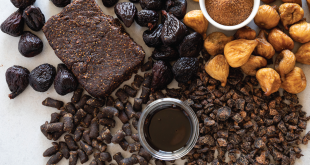
Text by Jenny Zegler
Consumers’ increasing skepticism of food and drink products that have ingredient lists that are lengthy and/or contain unrecognizable items is leading to preferences for products that do not contain artificial ingredients. This momentum toward natural and “less processed” food and drink is driving consumers to deem “Artificial: Public Enemy No. 1,” as explored in Mintel’s 2016 Global Food + Drink Trends.
Consumer preferences for food and drink that is “less processed” is spreading. Mintel research finds that 42% of Canadian internet users ages 18 and older said eating less processed foods was part of their personal health and wellness goals for 2015. In the U.S., 53% of internet users ages 18 and older who are solely or partly responsible for shopping avoid buying processed food.
Consumers also have opinions regarding which categories would benefit from removing ingredients/contents. Processed meats top the list, with 52% of Canadian internet users ages 18 and older who use free-from foods and/or beverages wanting shorter ingredients lists on cold cuts and other meat products. The broad category of snacks, which is defined to include chips, granola bars and chocolate bars, places second, as 47% of Canadian free-from food buyers would like simpler ingredient lists on snacks. The leading categories are followed by frozen meals (42%), sauces and condiments (32%) and desserts (29%).
One of the priorities for consumers who are looking for “less processed” food and drink is to reduce or to avoid artificial ingredients, such as artificial sweeteners, colours and flavours. These behaviours have inspired U.S.-based manufacturers and foodservice brands, including Hershey’s, PepsiCo and McDonald’s, to pledge to reformulate and remove artificial ingredients from certain products or categories in the coming years. The announcements represent proactivity from companies, while still being honest that reformulation will take time. Despite potential waiting periods, the company announcements serve to reassure consumers that their desires are being heard.
With this momentum in mind, Mintel predicts that 2016 will be a pivotal year during which companies that have yet to remove artificial ingredients from products will face scrutiny at minimum, or, more seriously, run the risk of boycotts.
For companies with large portfolios, some categories are on consumers’ watch lists more than others. In the beverage category, 62% of Canadian adults associate carbonated soft drinks with the term “artificial.” Likewise, 53% of Canadian adults align energy drinks with the term “artificial.” The two categories fare worse in comparison to fruit juice or juice drinks, which are deemed “artificial” by 26% of Canadian adults, and a mere 4% who identify bottled water as “artificial.”
In this environment, products with artificial ingredients run the risk that consumers will switch to natural formulations instead of compromising their preferences or waiting for reformulations. In fact, 71% of Canadian internet users ages 18 and older who consume energy or sports drinks agree that they prefer to drink more natural beverages (eg, milk, water, coconut water) instead of sports drinks.
As an increasing number of companies offer natural varieties or promise that reformulated products will be coming soon, consumer expectations will grow. This will lead to interest in more specific claims. More manufacturers may follow the lead of companies like Canada’s Love Child Organics and offer products with “nothing artificial” claims. The succinct statement directly communicates formulation and reassures shoppers, giving them the security that a product is the opposite of a public enemy.
Jenny Zegler is Global Food & Drink Analyst at Mintel
 Canadian Food Business
Canadian Food Business




